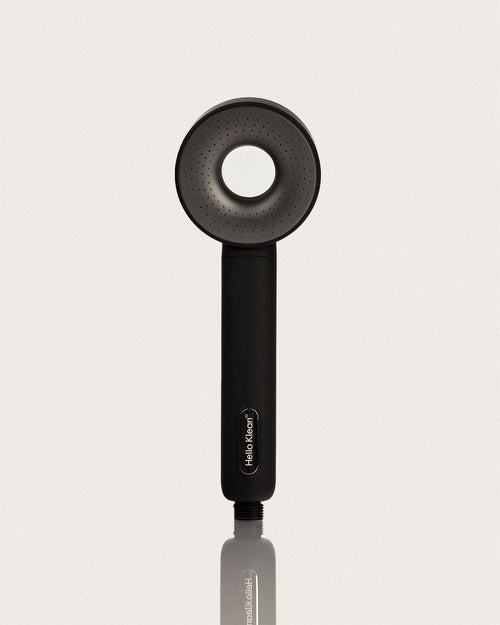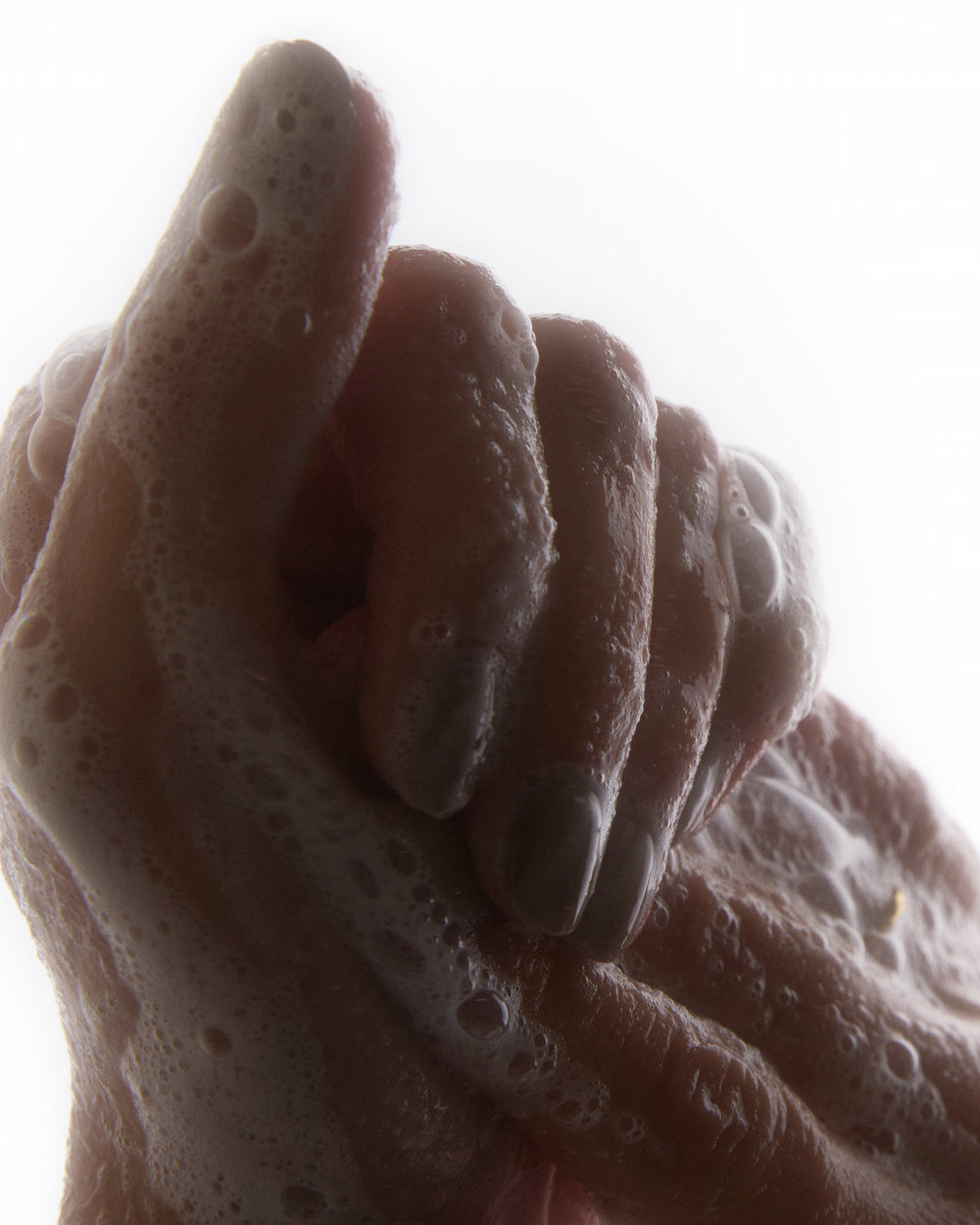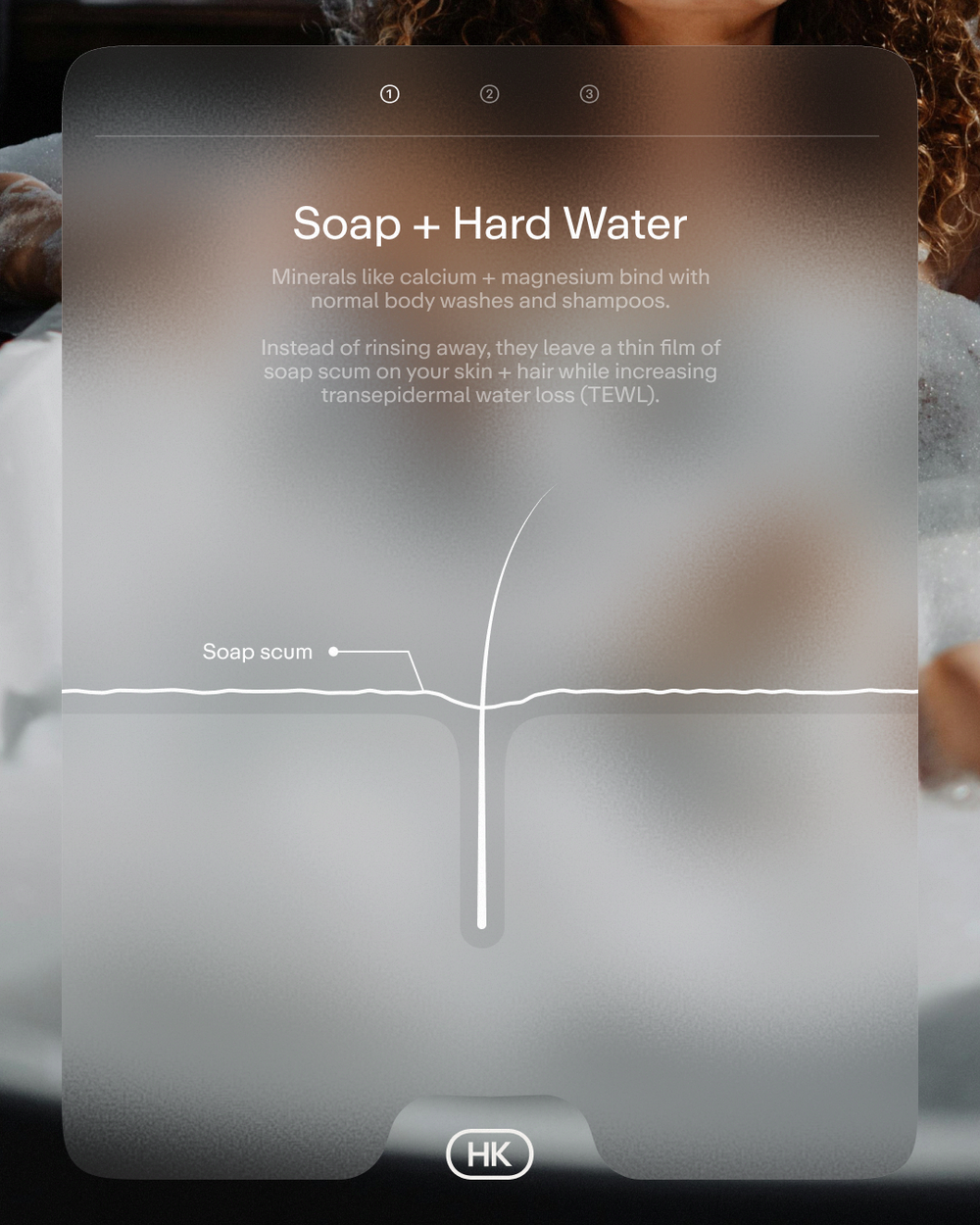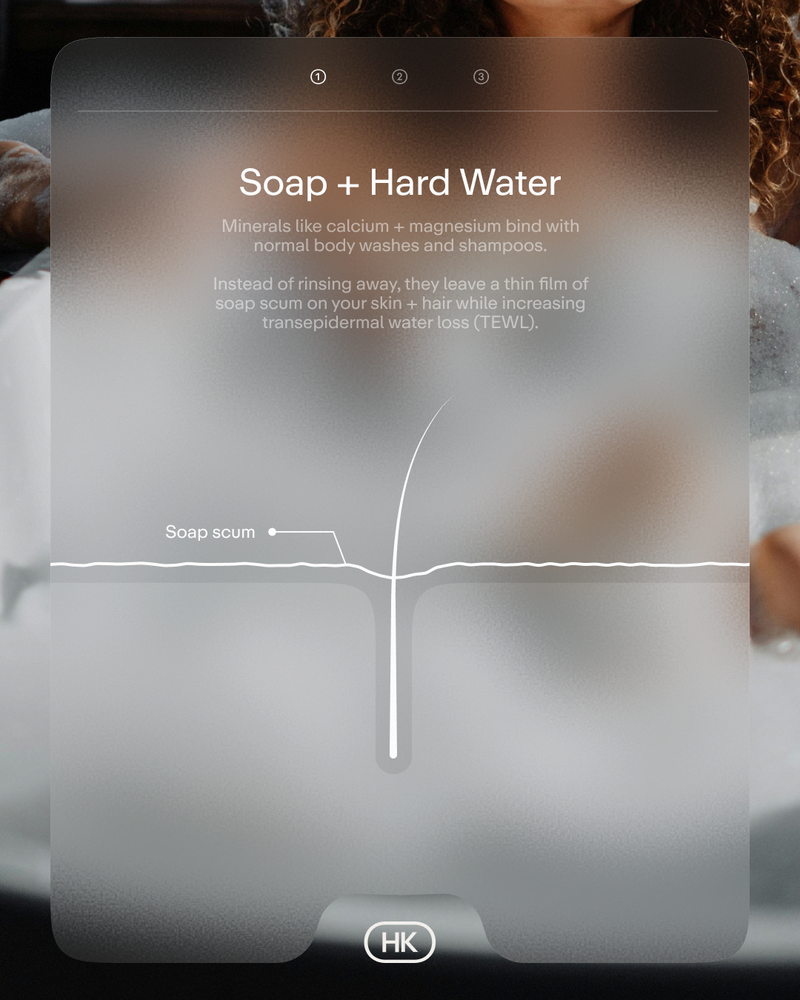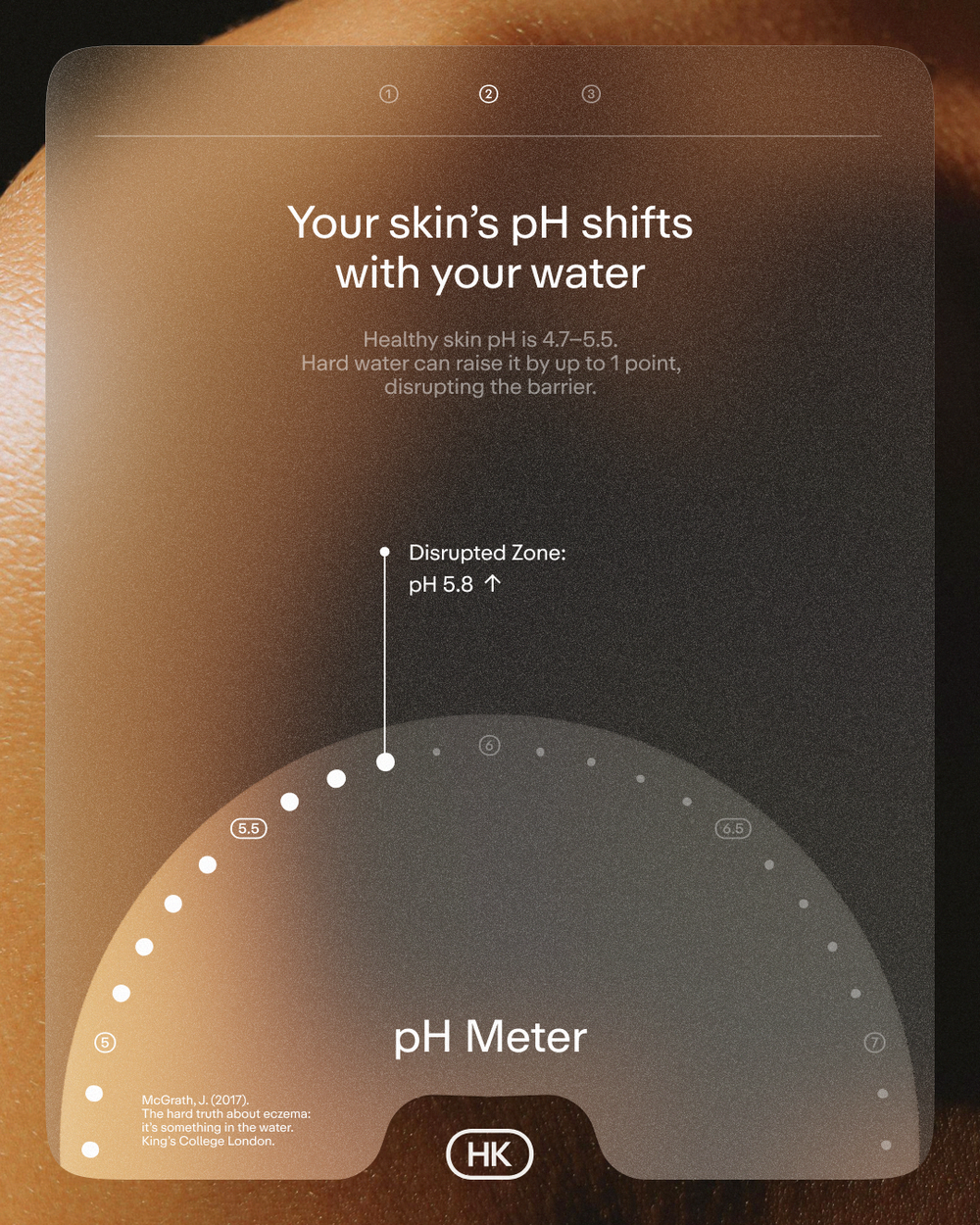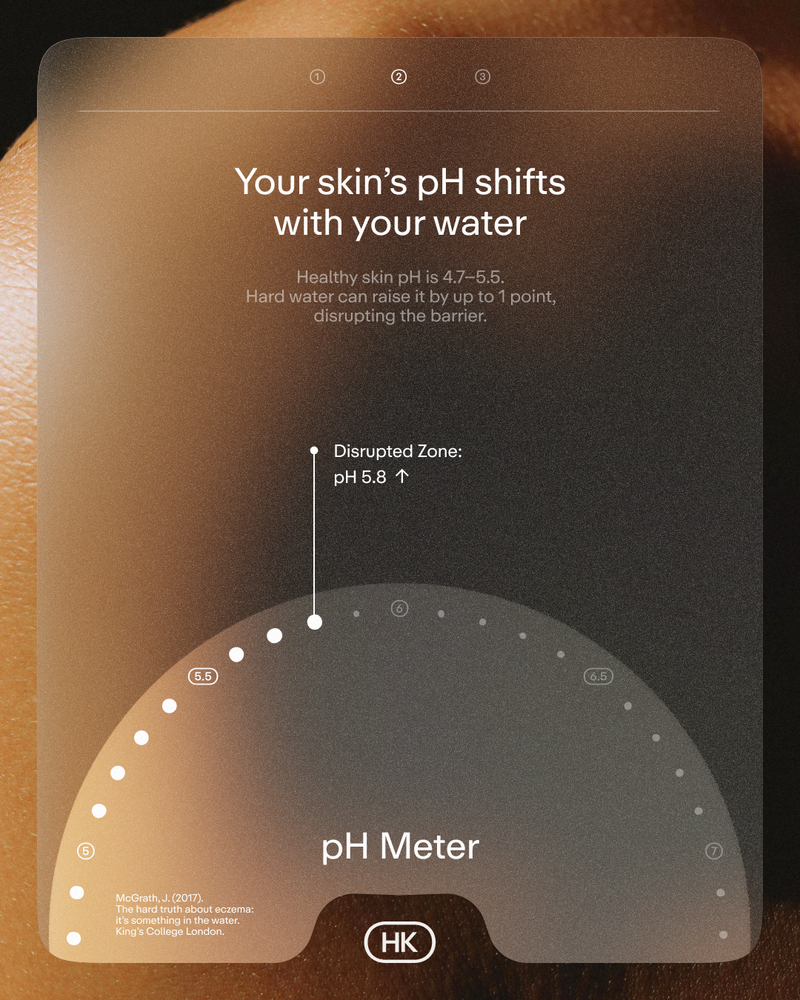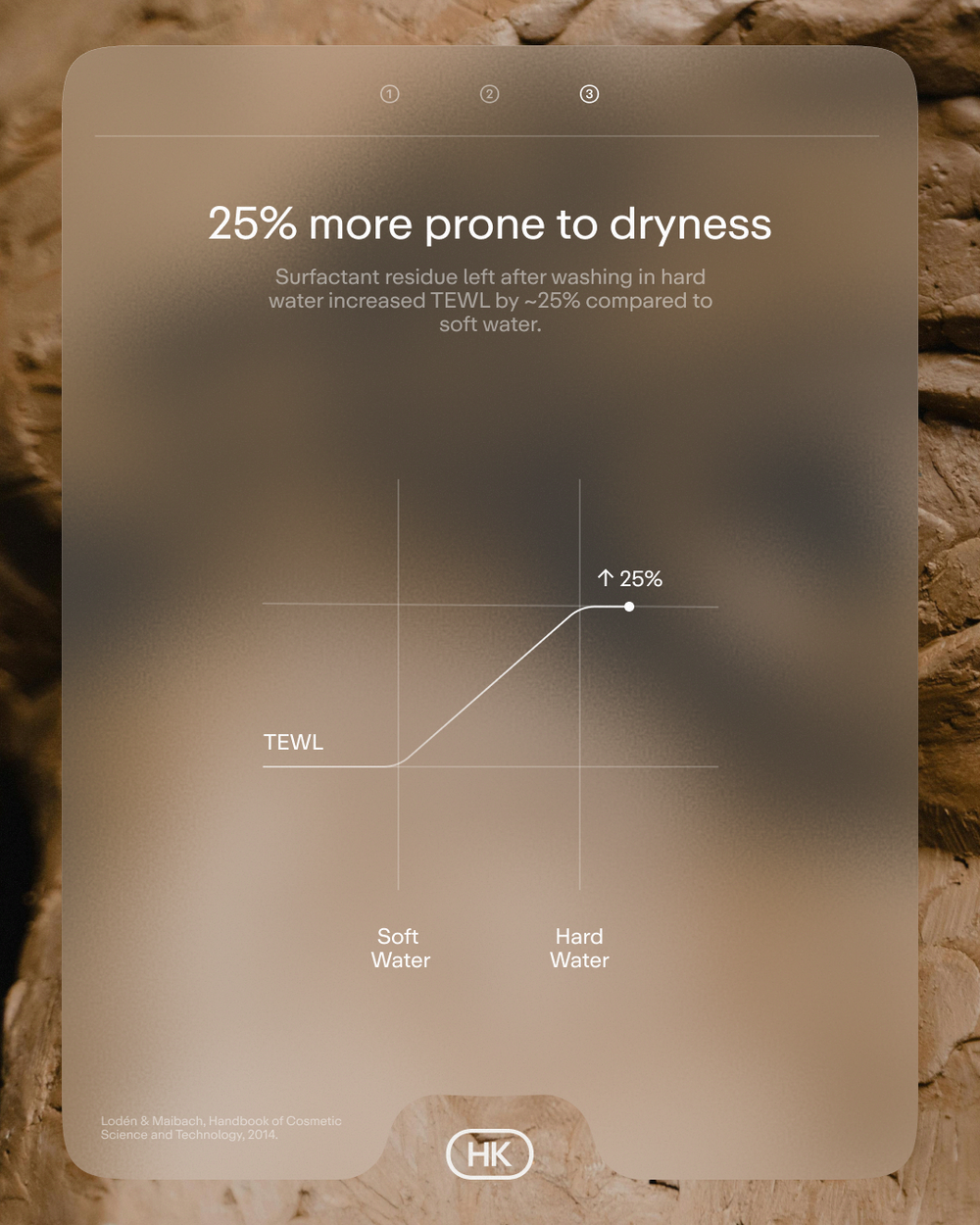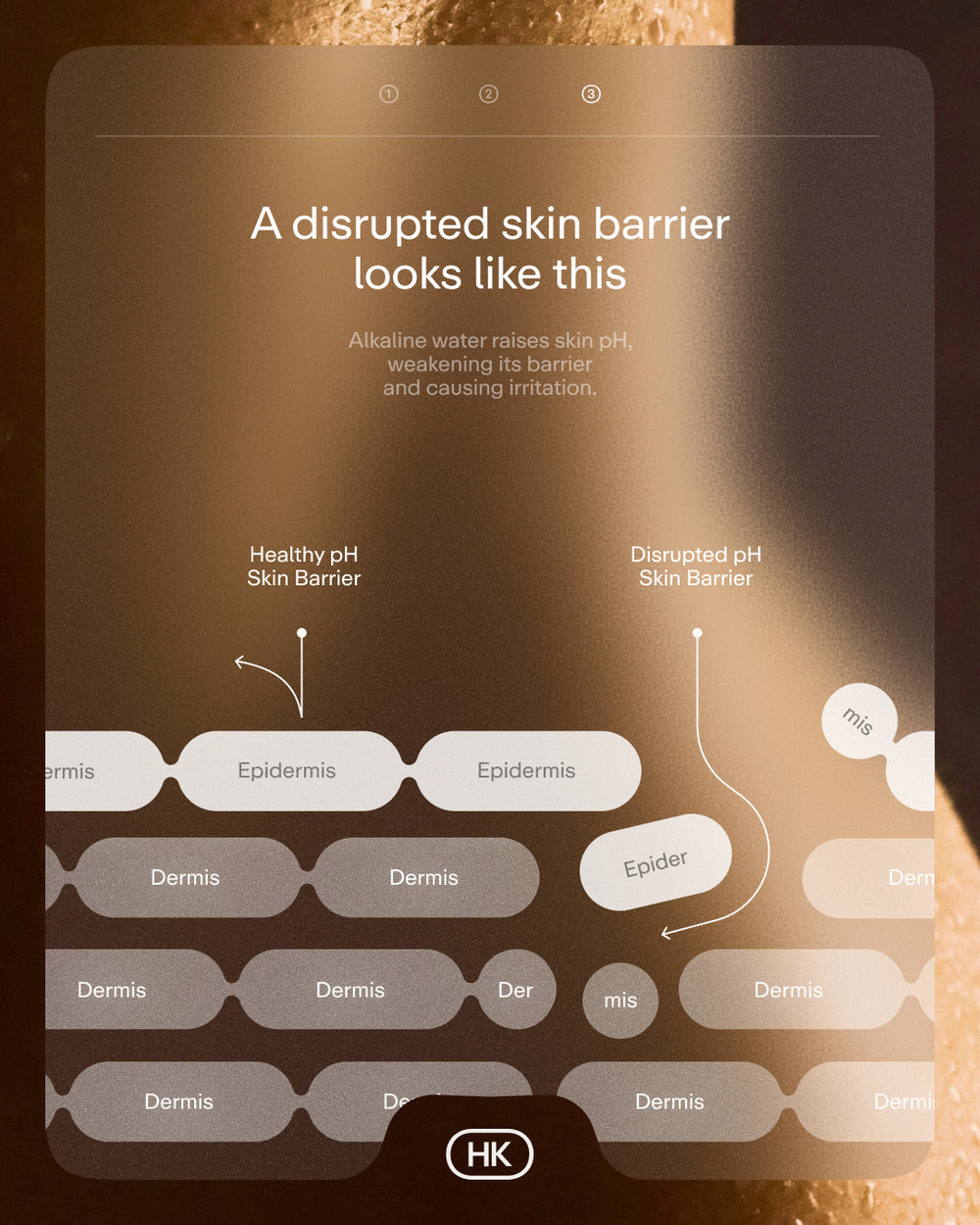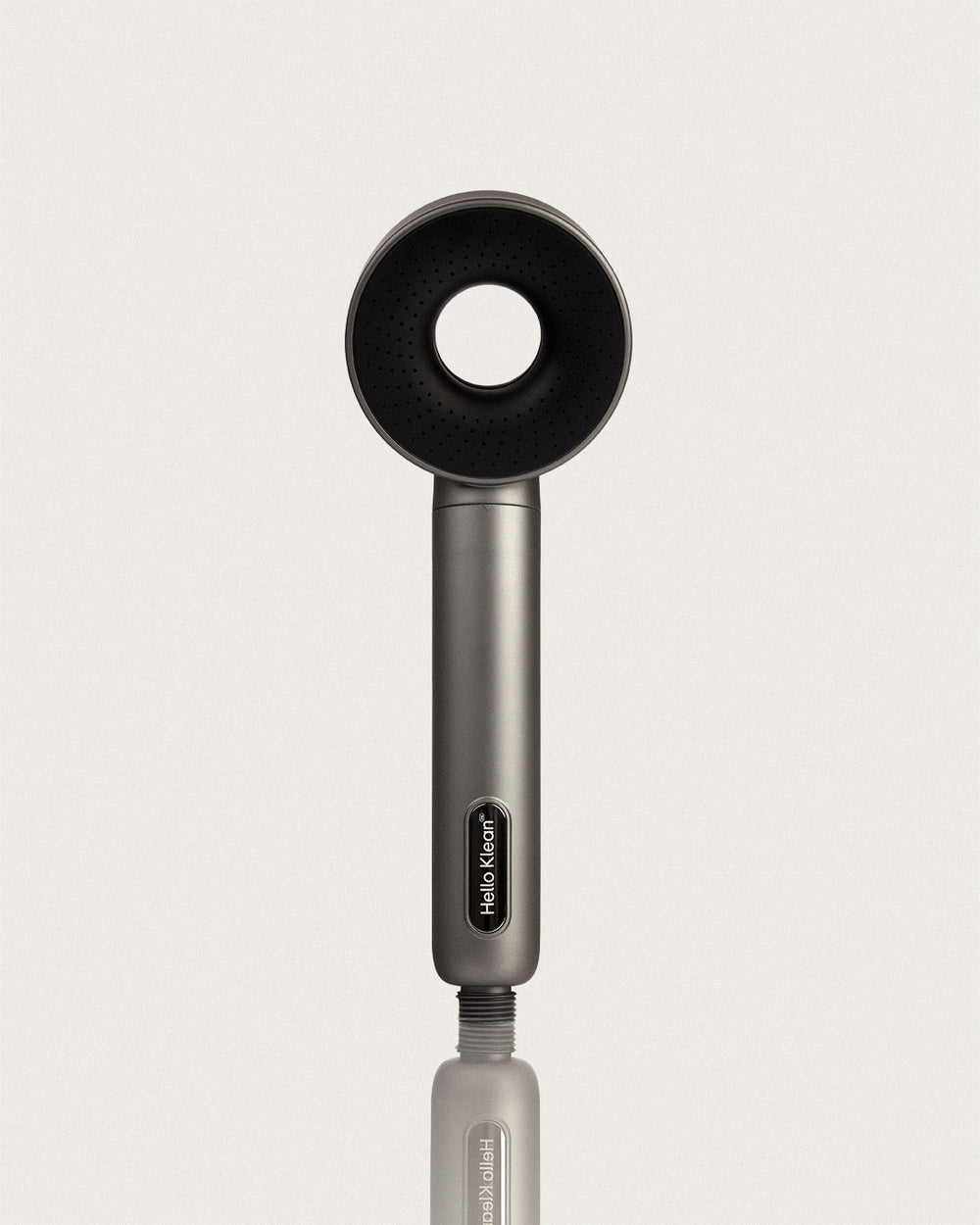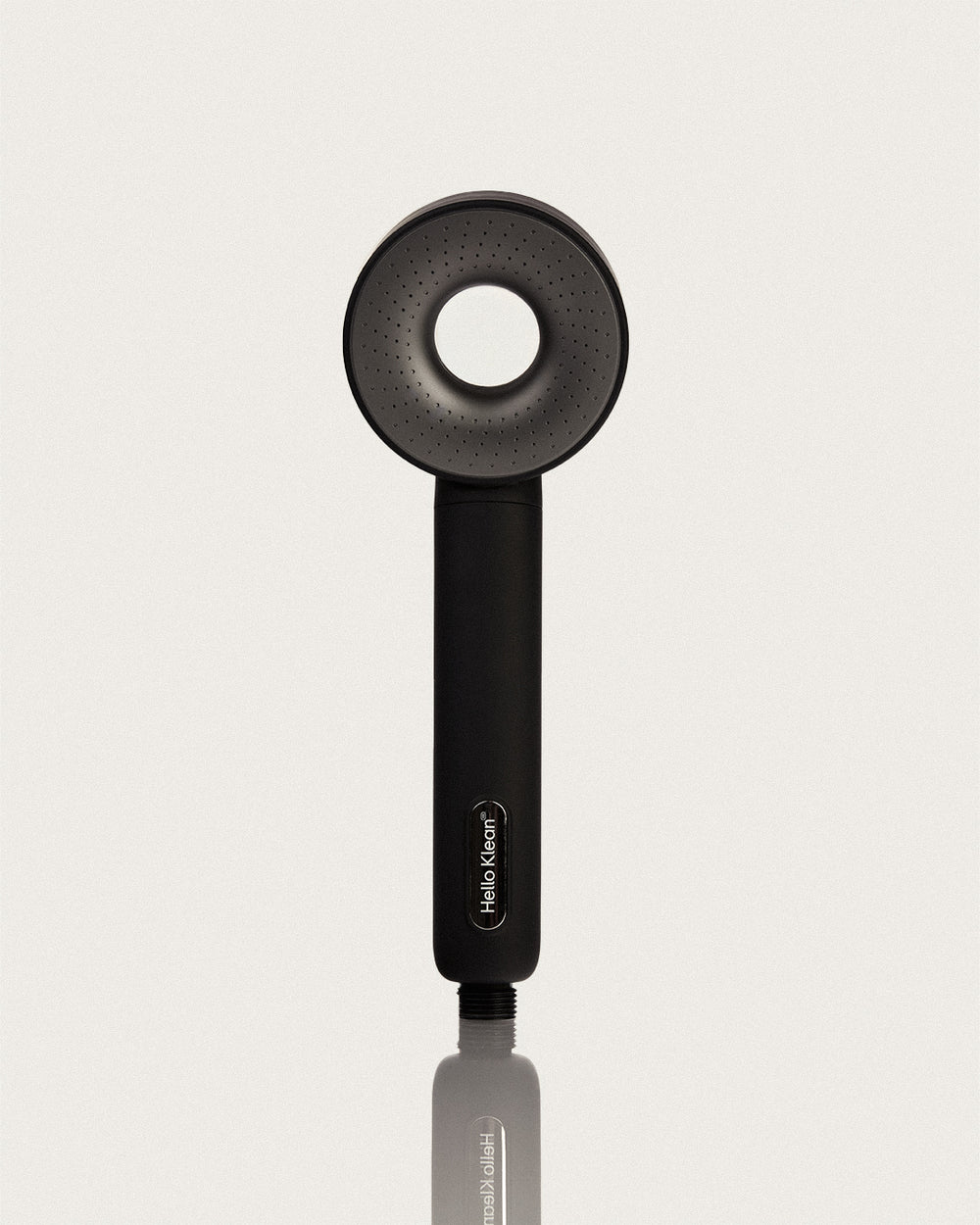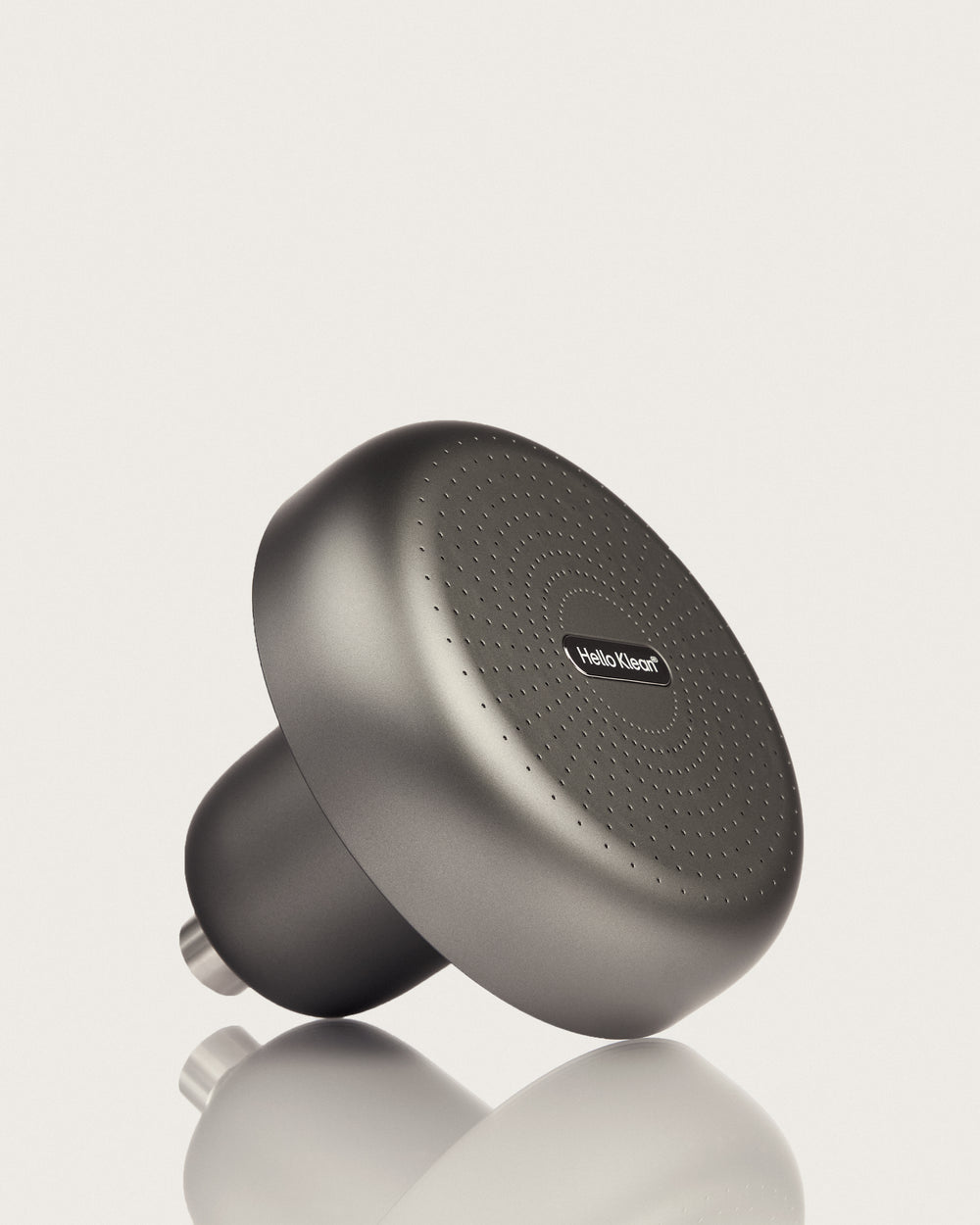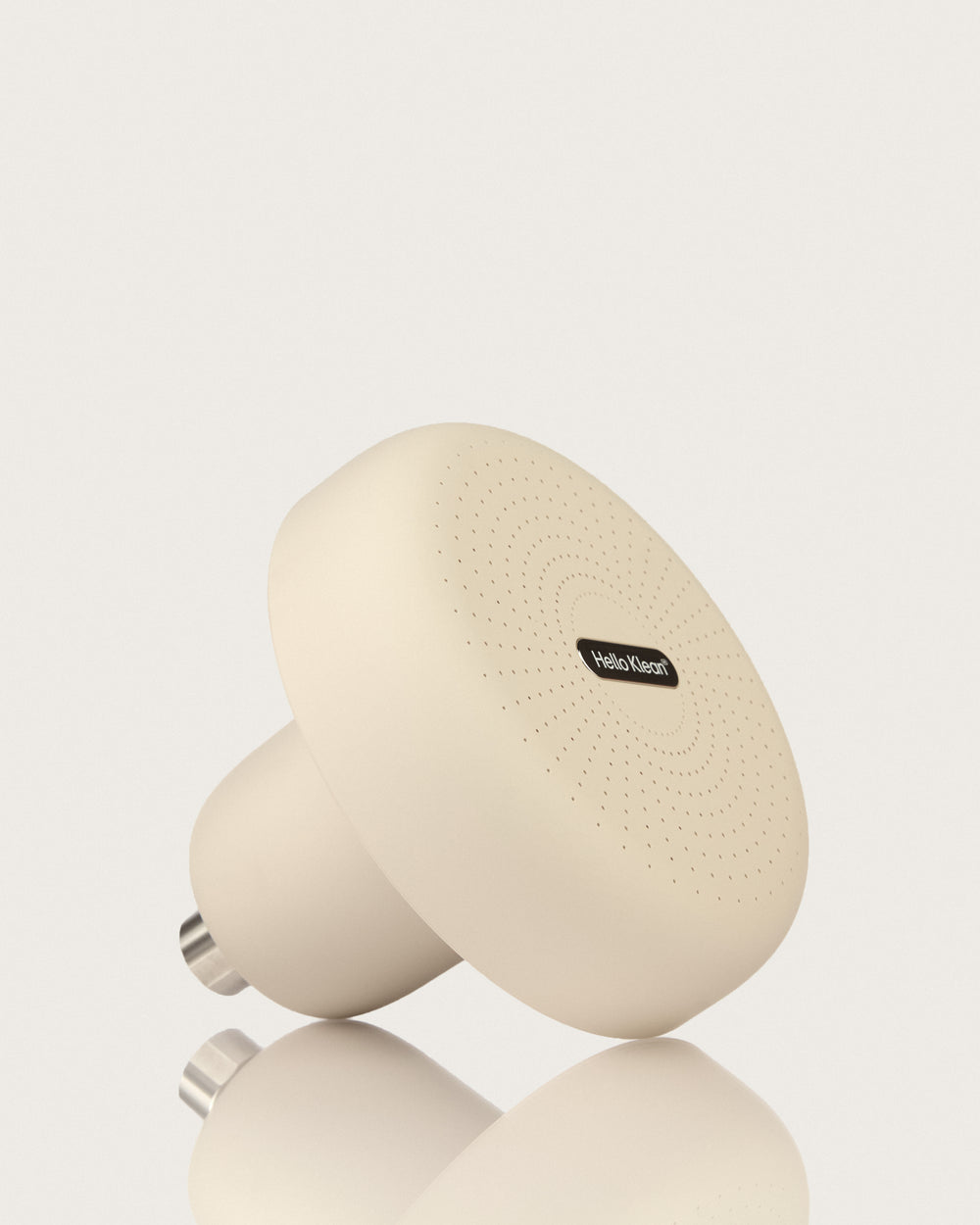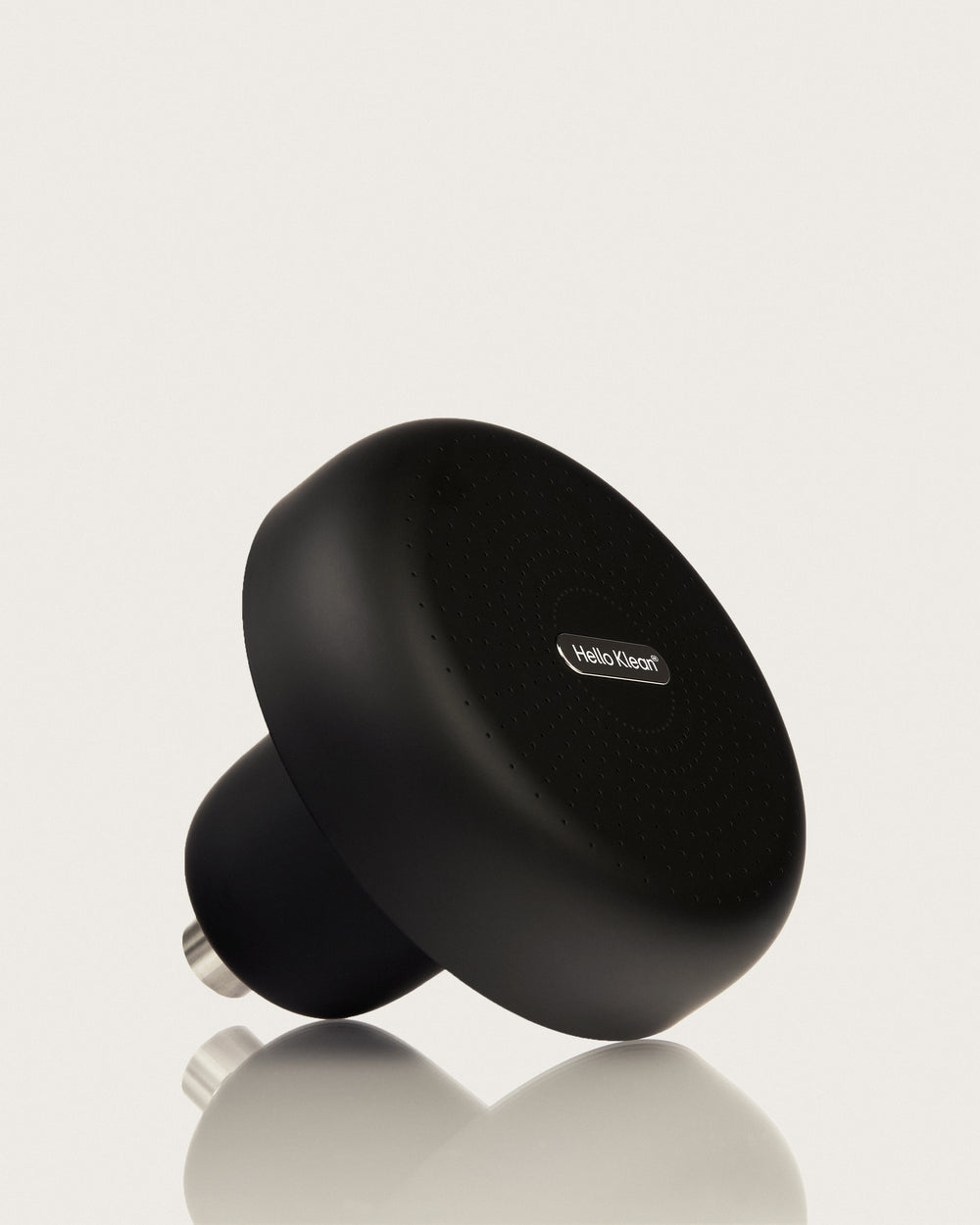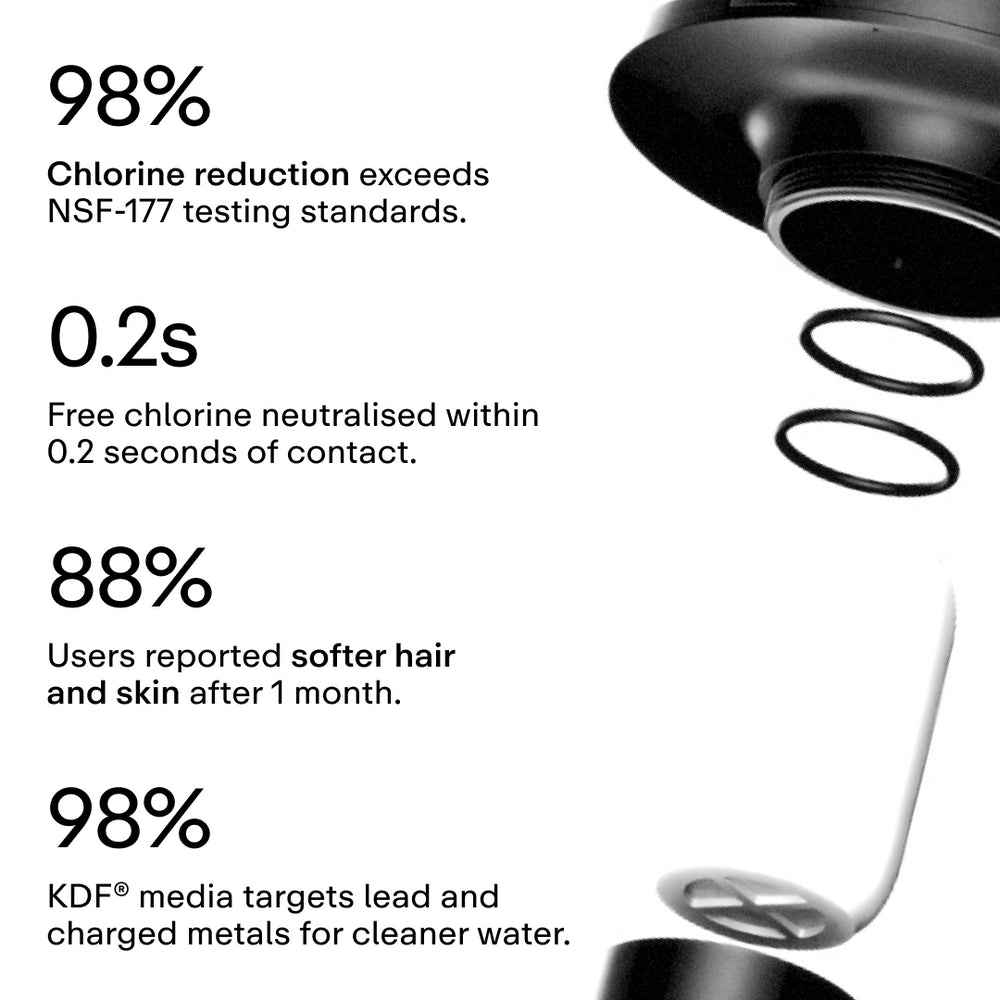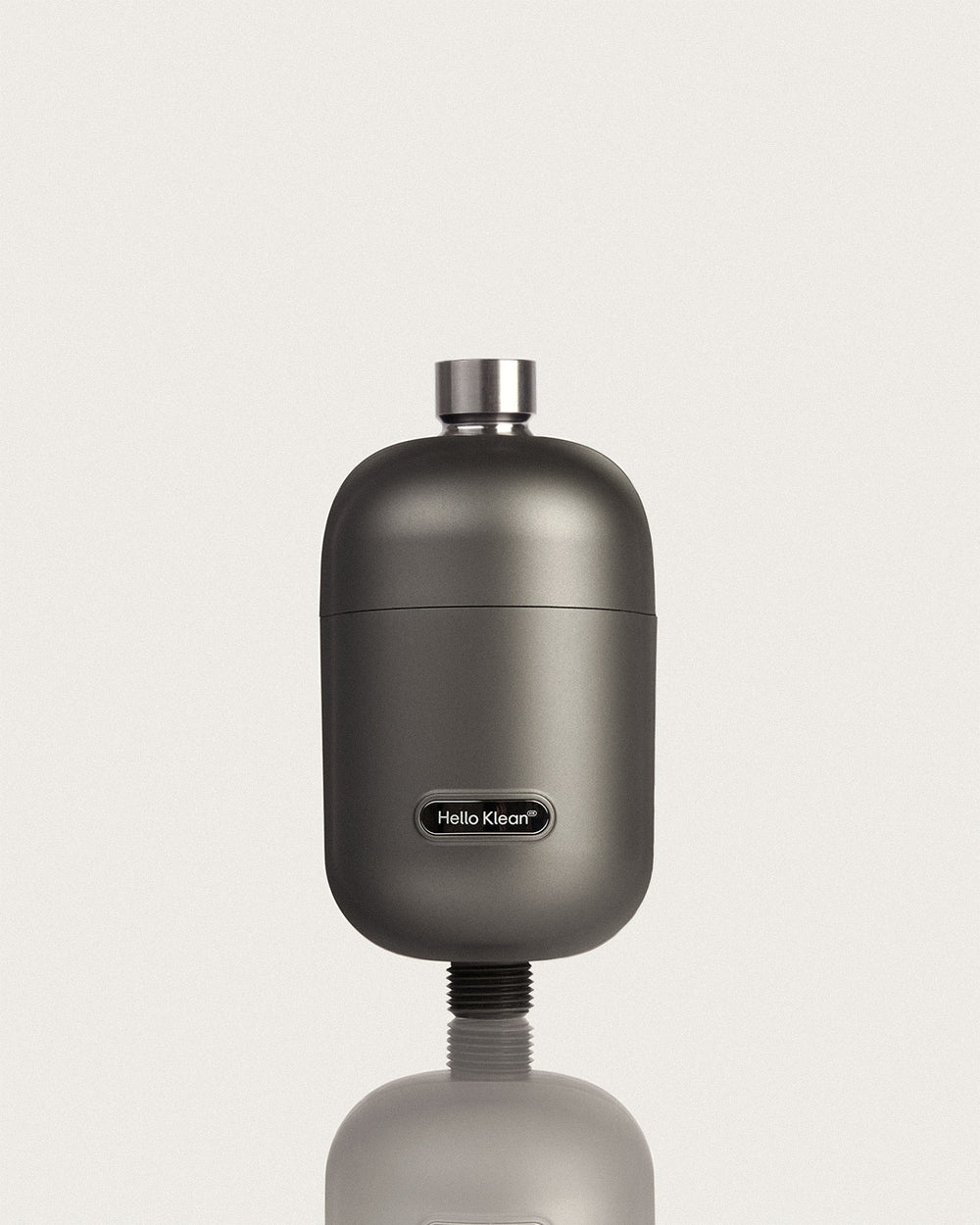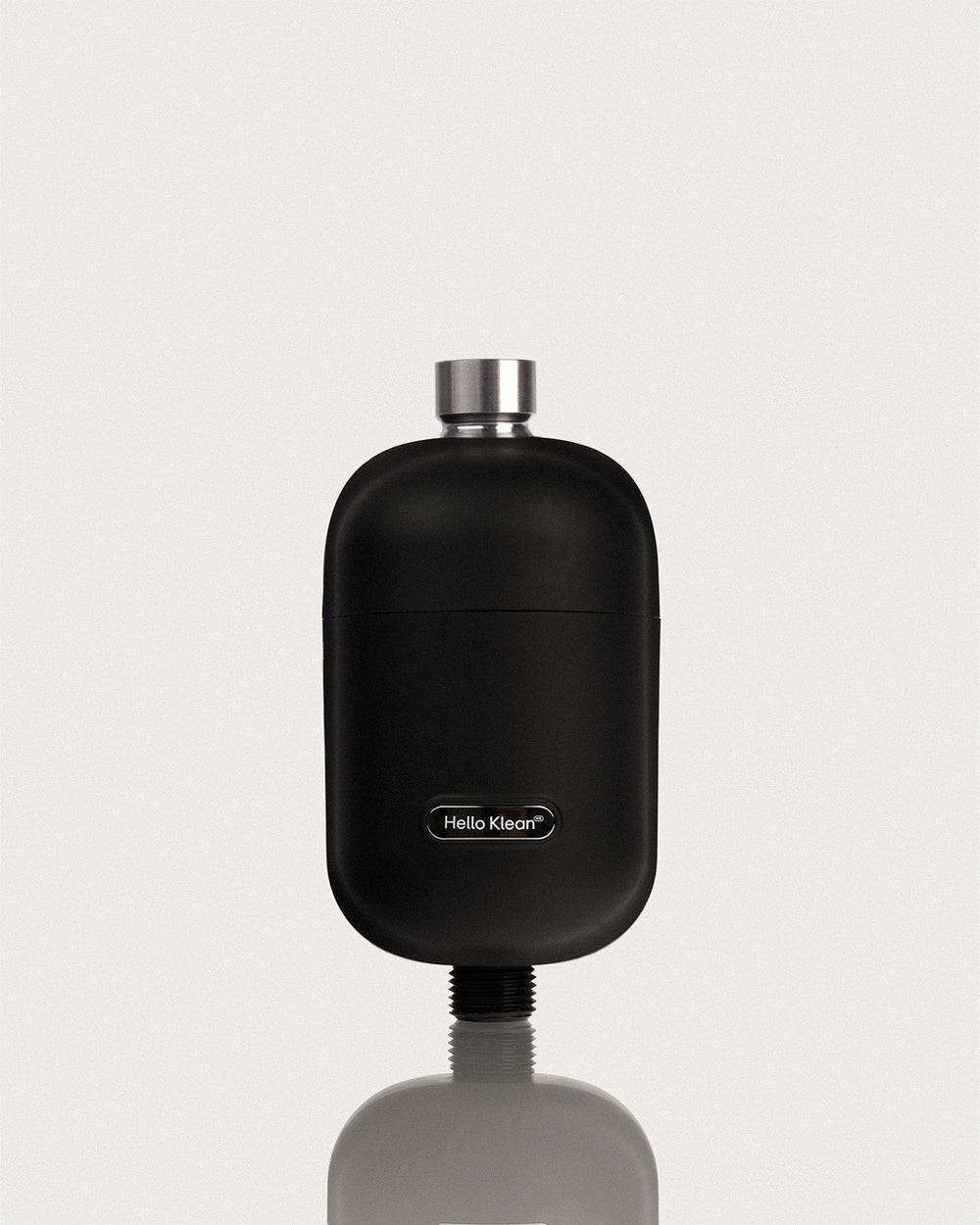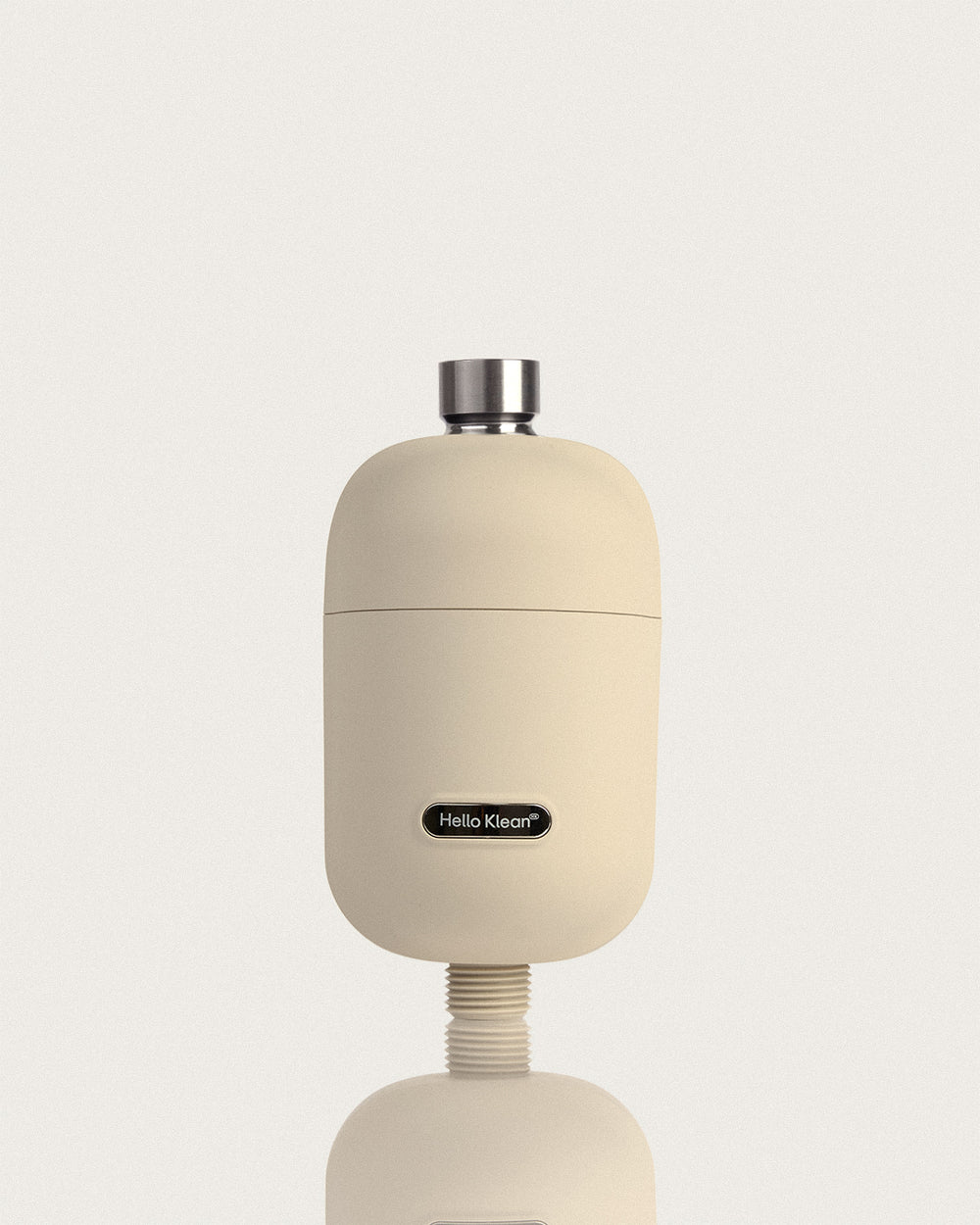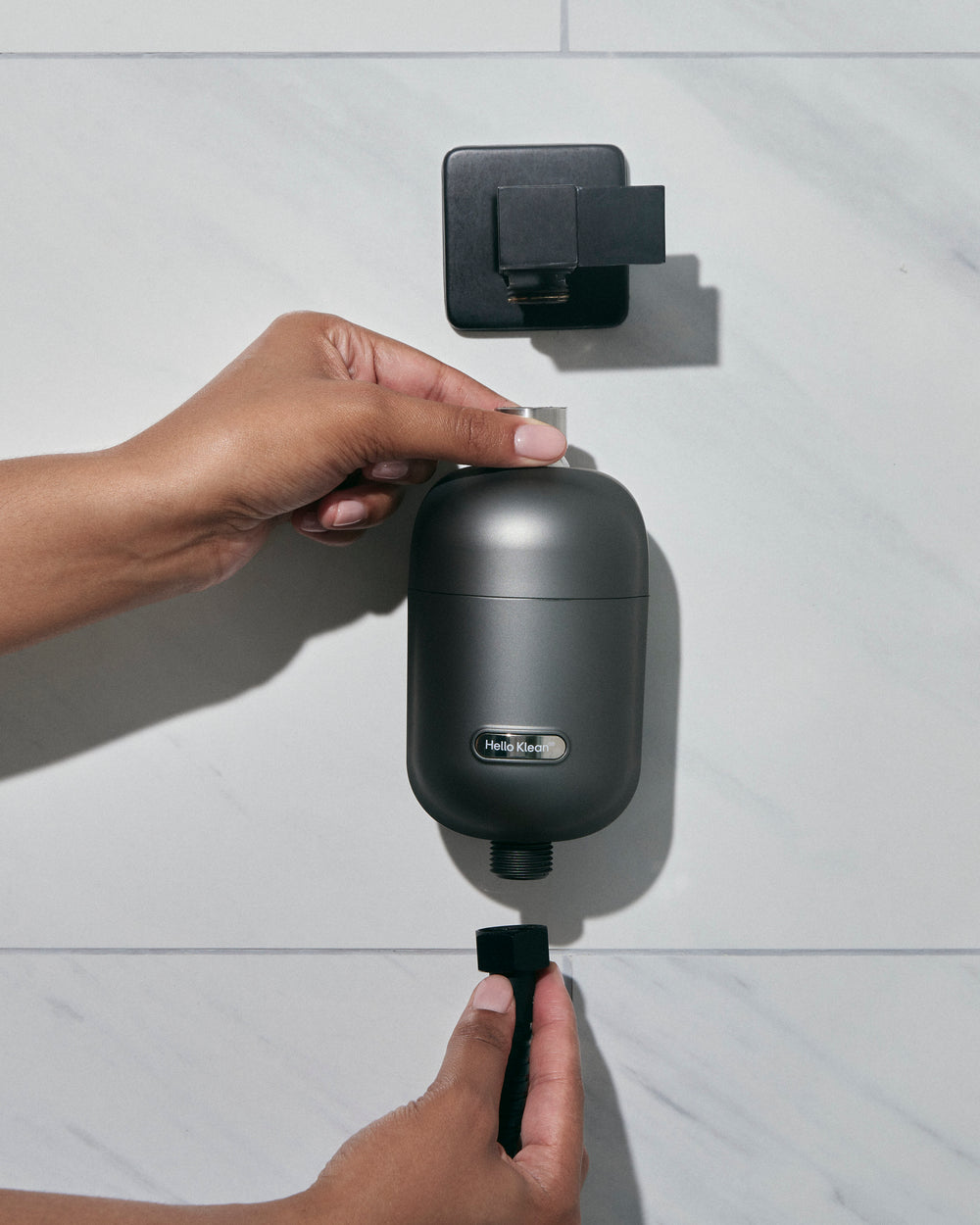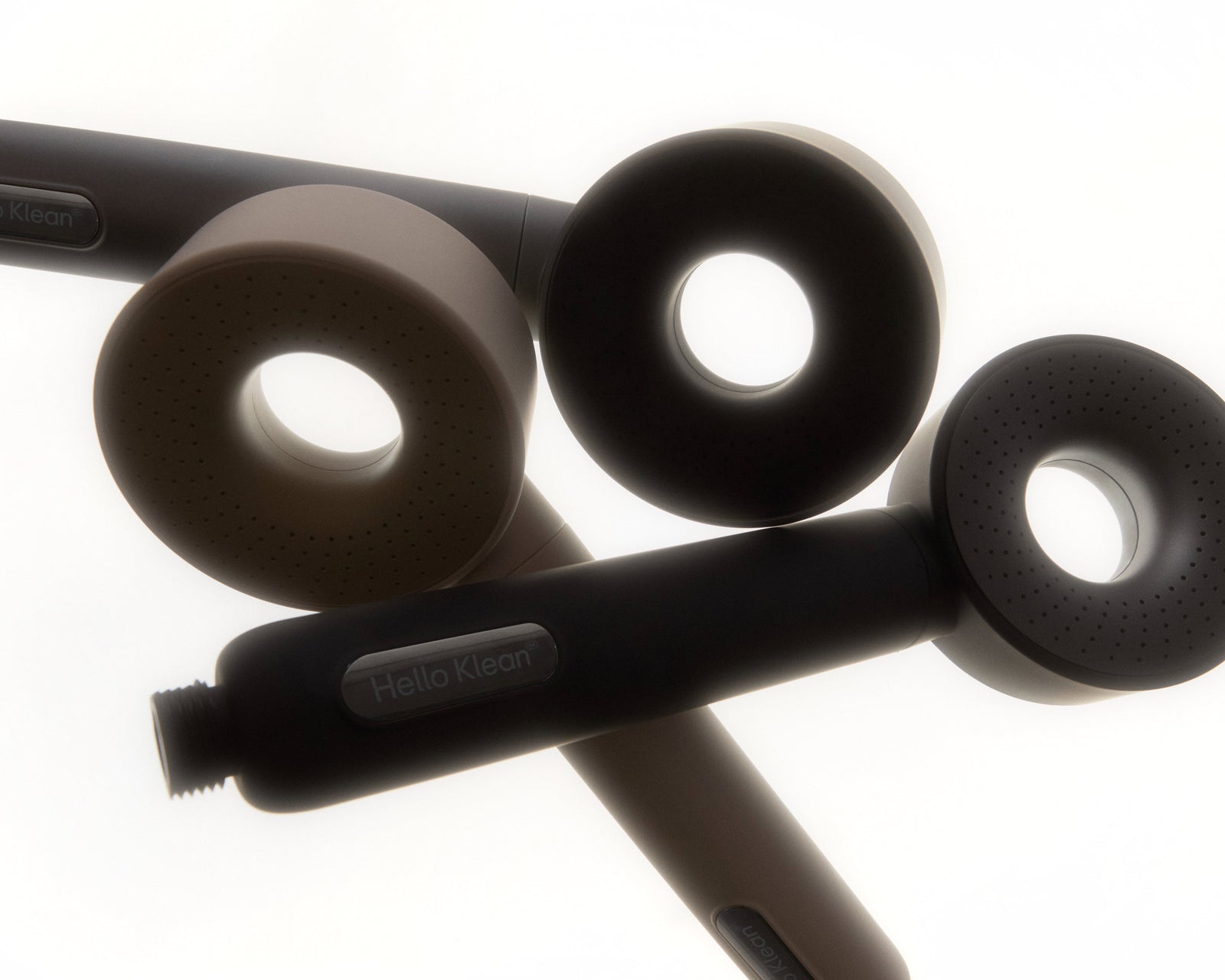Hard water can contain minerals, mainly calcium and magnesium, and sometimes trace metals like iron or copper. When water contains such minerals, it doesn’t properly dissolve soap, meaning that there can be some residue left on the skin. This can contribute to sensitive, irritable and blemish-prone skin.
Hard water can also increase skin pH, making it more alkaline. The skin barrier functions best at a slightly acidic pH (~5.5). A higher pH weakens the skin's defence mechanisms.
Prolonged exposure to hard water can result in a compromised skin barrier, making it more susceptible to various skin issues. This can result in a flare up of eczema and psoriasis and even result in heightened skin sensitivity.
“My patients rarely think of water when their skin flares up, but they should.”
Hard water is rich in calcium and magnesium. These minerals leave a residue on your skin that raises its pH, making it more alkaline. Over time, this can lead to dryness, tightness, irritation, and increase the risk of eczema.
Dr. Sonia Interview on Hard Water Impact (2025)
“Hard water changes how your products work.”
Minerals like calcium and magnesium react with cleansers to create soap scum, leaving a filmy residue on skin, scalp, and surfaces. This buildup blocks moisture and makes products less effective over time.
“Chlorine accelerates moisture loss, leaving skin feeling tight.”
For sensitive or eczema-prone skin, this irritation compounds over time, making flare-ups more frequent and recovery slower.
“Heavy metals in water are invisible but impactful.”
Trace metals like copper and iron, often found in older pipes, can deposit on skin and scalp. These invisible particles contribute to oxidative stress and interfere with how your skincare and hair care perform. This build-up can explain why some skin feels persistently dry, congested, or irritated even with a consistent routine.
Dr. Sonia Interview on Hard Water Impact (2025)
“You can’t change the water supply, but you can change how it hits your skin.”
Filter





